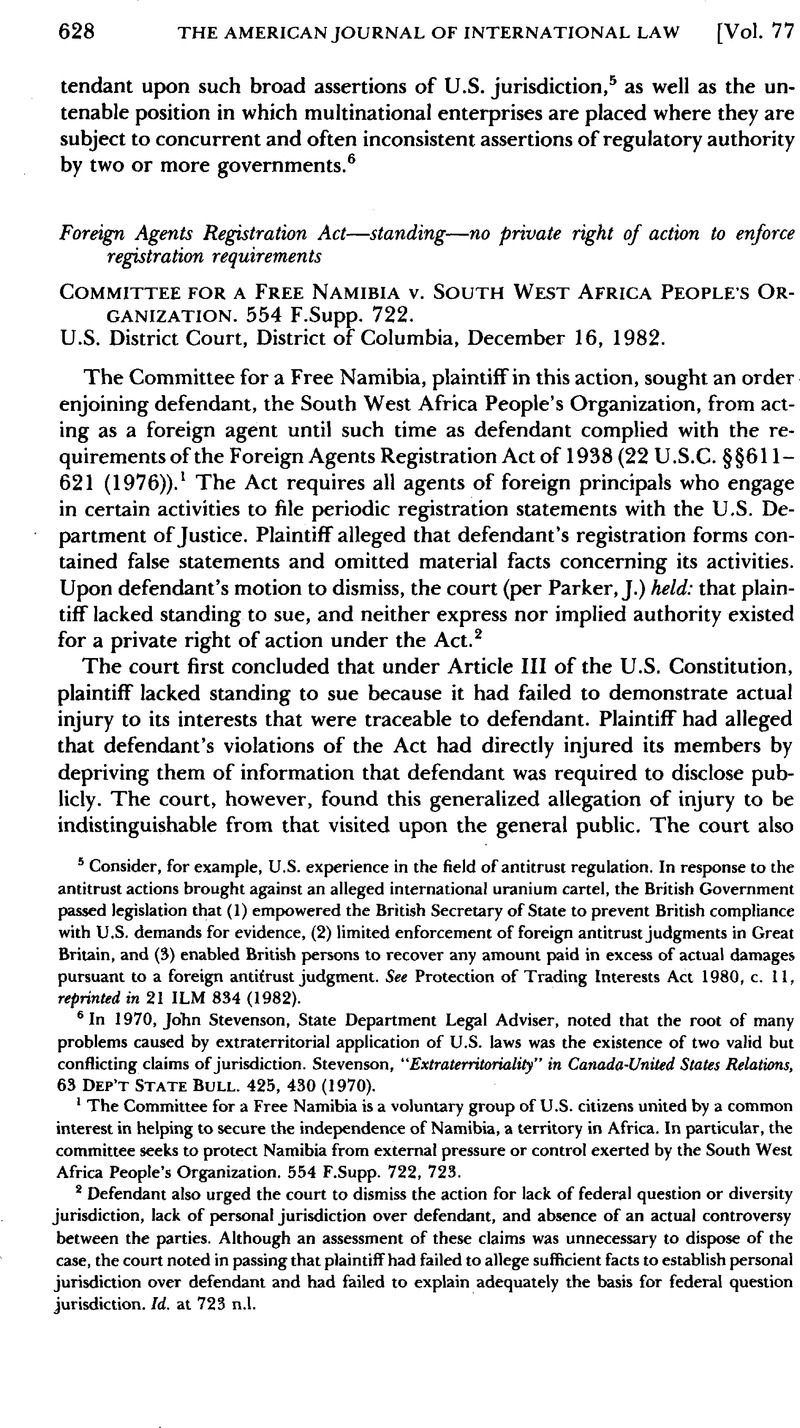No CrossRef data available.
Published online by Cambridge University Press: 27 February 2017

1 The Committee for a Free Namibia is a voluntary group of U.S. citizens united by a common interest in helping to secure the independence of Namibia, a territory in Africa. In particular, the committee seeks to protect Namibia from external pressure or control exerted by the South West Africa People’s Organization. 554 F.Supp. 722, 723.
2 Defendant also urged the court to dismiss the action for lack of federal question or diversity jurisdiction, lack of personal jurisdiction over defendant, and absence of an actual controversy between the parties. Although an assessment of these claims was unnecessary to dispose of the case, the court noted in passing that plaintiff had failed to allege sufficient facts to establish personal jurisdiction over defendant and had failed to explain adequately the basis for federal question jurisdiction. Id. at 723 n.l.
3 See Duke Power Co. v. Carolina Envtl. Study Group, 438 U.S. 59, 75 n.20 (1978).
4 The Supreme Court articulated these four criteria in Cort v. Ash, 422 U.S. 66, 78 (1975): (1) whether plaintiff belongs to the class for whose special benefit the statute was enacted; (2) whether there is any indication of legislative intent to create or deny a private right of action; (3) whether a private right of action is consistent with the underlying purposes of the legislative scheme; and (4) whether the cause of action traditionally falls within the realm of state law.
5 554 F.Supp. at 725 (quoting Baker v. Carr, 369 U.S. 186, 217 (1962)).
6 See, e.g., 22 U.S.C. §618(a) (authorizing the Attorney General to prosecute criminally willful violations of the Act’s registration requirements); 22 U.S.C. §618(f) (authorizing the Attorney General to seek injunctive relief to ensure compliance).